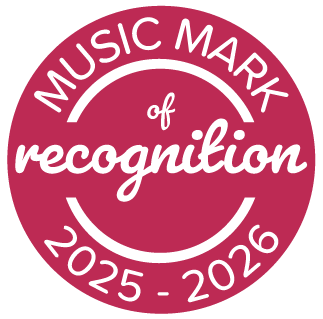Assessment
At SUN, children are assessed as part of normal daily practice. We supplement this with termly Summative Assessments in Reading (PIRA), Maths (PUMA), Spelling (Hodder) and Times Tables. This enables us to identify any gaps in learning, and keep a close eye on children's progress in a standardised way throughout the school.
The informal testing is known as Teacher Assessment and is an important part of the process as it uses judgements made from ongoing assessments, taken over the whole academic year. Teachers, in fact, make informal assessments every time they teach a class, and they will use these judgements to plan what the children need to learn next. The formal tests are known as Standard Assessment Tests, (SATs) which are produced nationally and are taken by all children in the country.
To help parents, we have Parent Assessment Information Evenings and have created power points to give detail about the testing and assessment arrangements.
Assessment in Reception and Key Stage 1
In Reception, children undergo a Reception Baseline Assessment in the first few weeks of joining Acorn Class. This is a National test that all children have, to enable schools to show children's progress over their time in school, creating a baseline measure from which cohort-level progress to the end of Key Stage 2 (KS2) can be calculated.
In Year 1, in the Summer term, all children complete the Phonics Screening Check, whereby each child reads 20 real words and 20 made-up (pseudo) words to determine their phonetic reading skills. If a child doesn't reach the expected standard at the end of Year 1, they will re-take the check in Year 2.
SATs tests at Key Stage 1 are now optional, and we no longer publish these results.
At Key Stage 2 children are tested as follows:
- Maths is tested in 3 papers:
- Paper 1 – Arithmetic
- Paper 2 – Reasoning
- Paper 3 – Reasoning
- Reading is tested using a reading booklet and an answer book
- SPAG is tested by a test paper
- Spelling is tested by an aural test
- Writing is assessed by teachers
- Science is assessed by teachers
The timetable for the tests changes from year to year but the tests must be administered according to the national timetable and guidance, unless special circumstances prevail.
All of the test papers are marked externally and we provide you with your child's results in written form as part of their annual report at the end of the Summer term. If we spot a discrepancy in the marking we can resubmit it for re-marking by another examiner, but this delays the process and results of this aren't known until the following Autumn term.
Special Arrangements
We are able to make special arrangements for some pupils according to some additional needs. Some children are entitled to additional time for some tests, if we suspect that they would suffer unduly and be unable to concentrate. For others, who find reading takes longer, additional time may be able to accommodate this problem. Some children may have an adult ‘reader’ or ‘scribe’ for some tests – obviously reading and writing tests are exempt. We will discuss the needs of your child with you so that you know the arrangements, which are in place. Children with scribes and readers will take the test in another room, where other children cannot be either disturbed or given support with the test.
Equipment
The school provides all the equipment the children need.
How is the school helping to prepare the children?
- By practising key skills, which will prepare the children for the process of the tests
- By giving parents the information they need to help their child
- By using revision materials – booklets, homework
- Through class lessons, making sure the children have covered all of the areas tested and are familiar with the 'look' of the tests
- We never put undue pressure on children to 'perform' in test situations. This only leads to anxiety. Children will be well prepared, in a relaxed fashion, to avoid and/or reduce anxieties and be mindful of the children's well being - this is always paramount.
How can I help my child?
- Ensure they attend school every day - attendance is the key factor in pupil achievement
- Make sure you know what homework has been set and that it is completed thoroughly
- Don’t panic – don’t transfer your anxieties to your child
- Make sure they have all of the things they need for school
- Help with revision – reading, times tables, maths, writing, comprehension
- Perhaps practicing old test papers, these are available freely online
- Early nights and a ‘normal’ routine.
NB: if a child is unable to attend school either through illness or another reason, it is the responsibility of the Headteacher to make arrangements for children to take the tests off-site under the same conditions. A responsible adult, unrelated to the child, may transport the papers and administer the tests. The Headteacher must be satisfied that no information has been given to the child, which would compromise the confidential nature of the tests.
Assessment Procedures
At SUN, we recognise the importance of assessment (both summative and formative) and how it can be used to develop children’s learning. In our school, children are assessed against the National Expectations for their year group/ ability. We assess at the end of the first half of the school term (roughly October, February and June) to allow us to identify the gaps in learning, then focus teaching to address these gaps, before the term ends and new units begin.





